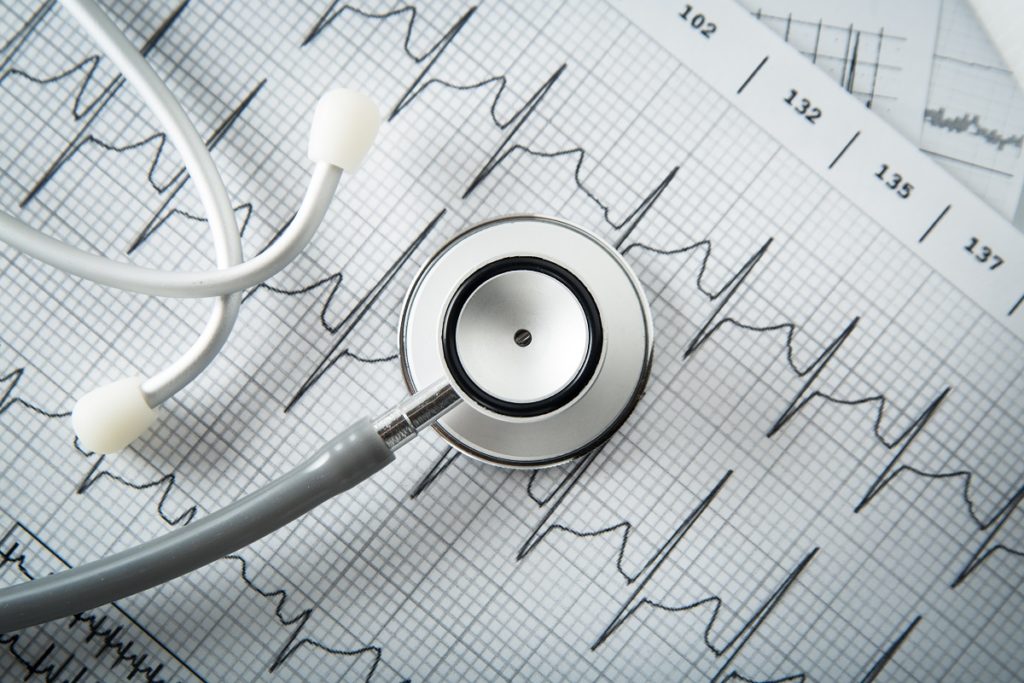You might recall the phrase “my heart skipped a beat” or “you make my heart beat faster” from those romantic movie flicks you’ve seen. While it’s true that your heart can change its beat in a situation where there is enough emotion to trigger it, the case is different from those times when it’s acting on its own.
What is Tachycardia?
Tachycardia is a heart condition where the heart beats fast while at rest, usually more than 100 beats per minute (bpm). The heart normally has a fast rate while you rest after you exerted yourself, generally after an exercise and goes back naturally on its regular rate.
Tachycardia has been standardized per age group. From age 15 and up, anything more than 100bpm is not reasonable for a normal resting heart. The heartbeat is triggered by electrical impulses sent across the heart tissues, and tachycardia occurs when there is an abnormality that causes the heart to create rapid signals that make it beat faster.
Symptoms
In most cases, tachycardia has no symptoms and can only be discovered after or during a physical exam or specific tests. Keep in mind that when the heart is beating too fast, blood is not pumped efficiently and may deprive some organs of oxygen. This, in turn, creates signs and symptoms related to tachycardia such as:
· Shortness of breath
· Lightheadedness
· Chest pain
· Rapid pulse
· Fainting
· Confusion
· Palpitations
· Sudden weakness
· Dizziness
· Low blood pressure
Known Causes
Old age and genetics can also contribute to developing tachycardia as well as your lifestyle. Any situation that can disrupt or aggravate the electric impulses the heart makes to make it function can be a possible cause of tachycardia. These include the following:
· Any damage to the heart caused by a heart disease
· Stress
· Congenital heart disease
· Anemia
· Hyperthyroidism
· High or low blood pressure
· Electrolyte imbalance
· Medicinal side effect
· Excessive exercise
· Smoking
· Alcoholism
· Drug abuse
· Too much caffeine
Tachycardia can lead to serious problems if left unchecked. Factors like severity, heart rate, duration, or even an underlying heart condition may lead to fainting spells, blood clots that may lead to stroke or heart attack, heart failure, and even death.
When to See a Doctor
If you have experienced the symptoms, it’s better to see a physician to get tested. The physician can then endorse you to a cardiologist if initial test and physical exam show signs that lead to tachycardia.It is important to monitor your experience as it can help your doctor determine what causes your symptoms. It will also allow him to endorse you to the right specialist, and choosing the best doctor for you is just as crucial.
Once your physician makes a recommendation, you may check the American Board of Internal Medicine (ABIM) or the American Board of Family Medicine (ABFM) to check the board-certified cardiologist. For example, you’d be surprised to know that there are cardiology experts in Uintah Basin that may be closer than who your physician refers you to. Choose a doctor that suits your schedule and fits both your availability.
The test depends on the initial findings and may vary depending on the symptoms present. They are also essential to pinpoint what the possible treatment is right for you and determining the type of tachycardia you may have. Doctors may also try to find the underlying reason for you to have an unusual heart rate. The tests may include chest X-ray, blood tests, electrocardiogram (ECG), echocardiogram, stress test, till table test, and a Holter monitor.
Treatments

Tachycardia is approached by preventing future episodes and minimizing complications. These treatments are also designed to address the real reason for the symptoms. The doctor may teach you to do physical actions like the Vagal Maneuver that you can do (like coughing or exerting down yourself like trying to take a dump) during a fast heart rate situation, or prescribe anti-arrhythmic medication if the maneuver doesn’t work.
In some cases, treatment may turn out to be long-term maintenance, such as using Pacemakers or Implantable Cardioverter. In some cases, it could require open-heart surgery. Remember to take notice of your body and don’t ignore anything that you feel unusual. If diagnosed, remember to follow the doctor’s instructions to avoid future complications. It’s also important to keep a balanced diet and a healthy lifestyle, as well as learning to manage stress. While missing someone makes your heart grow fonder, missing a doctor’s appointment doesn’t.


